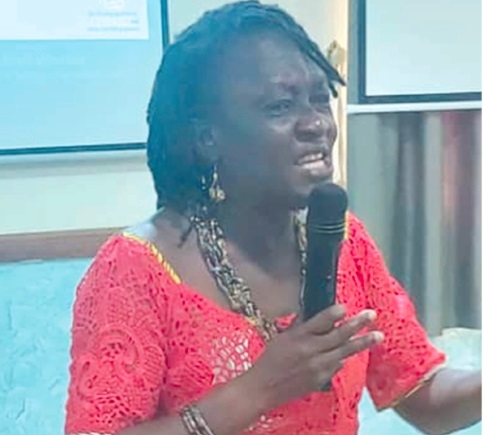
Stakeholders meet to disseminate findings on FGM
Female Genital Mutilation/Cutting (FGM/C) , which is a global concern because of its devastating effect on the overall wellbeing of victims, is still pervasive in many communities in the northern part of the country.
Advertisement
This is so because the parents and guardians of young girls and women who go through the practice believe that it will pave the way for them to be regarded as part of their respective communities.
This was revealed at a stakeholders meeting at Wa in the Upper West Region to validate the draft findings on FGM/C in order to formulate the roadmap to eradicate gender-based violence and harmful cultural practices by the year 2030.
Female Genital Mutilation /Cutting which was banned by law in 1994 and further amended in 2007 is still pervasive in the northern part of the country.
However, due to the ban, various methods have been activated to outwit the authorities, including circumcising newly born babies, sending young girls across the borders of the country to communities where the practice is permitted.
The overall objective of the baseline survey on FGM/C, funded by the United Nations Population Fund (UNFPA), was to assess the knowledge and the motivation that have sustained the FGM/C practice in northern Ghana.
Baseline survey report
The baseline survey was conducted in four districts, namely Pusiga, Kasena-Nankana, Wa-East and Sawla/Tuna/Kalba (STK) across three regions (Upper East, Upper West and Savanna). The study population of various ages comprised the circumcisers, both girls who have undergone FGM/C and those who have not, males, opinion leaders and government workers.
Delivering the baseline survey report, the Consultant, Dr Matilda Aberese-Ako, said the study rubbished many of the currently held reasons for the practice such as “without it women could not get married, they could not give birth, they could not be a chief’’s wife and the stigmatisation of children born by uncircumcised women”.
Dr Aberese-Ako noted that in the Kassena-Nankana West District, it was reported that the practice had gone down drastically, however, in the Wa East, the Sawla/Tuna/ Kalba and Pusiga districts, the practice had been going on.
She said although there is a slight decline in the Upper East Region, it was being done among babies between three months old and three years.
She said the survey also dismissed the age-long perceptions that it was good for discipline, fidelity and the prevention of teenage pregnancies.
The Co-Consultant of the Survey, Dr Atubiga Baba, recommended education and the provision of income-generating ventures for the young girls and women who earned their income from the practice as some of the ways to combat the practice.
This, he noted, should be a policy initiative that should be carried out by the government through various agencies such as the Ministries of Education, Health, Chieftaincy and Religious Affairs.




